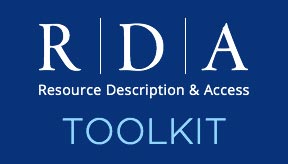BNE Adopts RDA
This past November the La Biblioteca Nacional de España (BNE) announced that it will adopt RDA as the standard for cataloging its collection. The English translation of the announcement follows. The Spanish version of the announcement can be found here.
THE NATIONAL LIBRARY OF SPAIN WILL ADOPT RDA: RESOURCE DESCRIPTION AND ACCESS AS CATALOGING STANDARD
The National Library of Spain has decided to adopt the standard RDA: Resource Description and Access for cataloging their collections. According to our initial estimates and the implementation schedule prepared, from 1 January 2017 to mid-2018 we will be working on the development of training materials and the training of our staff. Eventually, the National Library of Spain will begin to create bibliographic and authority records according to RDA from January 1, 2019.
For its part, the Fine Arts, Cultural Assets, Archives and Libraries Executive Management of the Spanish Ministry of Education, Culture and Sport, through the General Office of Library Coordination, has among its functions the coordination and promotion of library cooperation, as well as the supply of technical services and advice on library matters. Under these functions it believes that the adoption of RDA by the BNE is fundamental to facilitate the transition to this standard by the rest of Spanish libraries. In this respect, it will support this project, promoting collaboration with other public administrations under the Spanish Library Cooperation Council. The aim of this collaboration will facilitate training for all professionals and access to the necessary convergence with the international community that have already adopted RDA.
In December 2014 we announced that the National Library of Spain postponed its decision regarding the adoption of RDA: Resource Description and Access as standard for cataloging. Since then, we have continued studying the standard and participating in EURIG, the European RDA Interest Group. Following the announcement at the end of 2014, the National Library of Spain established a working group dedicated to the study of RDA composed of professionals from the National Library of Spain, from the Spanish Council of Scientific Research Libraries and the Library of Castilla and Leon. The activity of this group has given the work being carried out in the National Library of Spain greater operability and mainstreaming.
For the time being, we consider RDA an international standard designed for the digital world, the semantic web and linked data, which is intended to describe all types of entities and relationships in the bibliographic universe in order to meet the needs of users worldwide. It follows the evolution of IFLA models (FRBR, FRAD, FRSAD, LRM) and aims to align with standards from other communities outside the library world. On the other hand, the Spanish Cataloguing Rules are obsolete - its last edition dates from 1999 - and we do not have the necessary resources to develop a standard that replaces them. Moreover, we have not found a clear alternative to RDA and to continue as now could isolate us from the international community and away from those Spanish libraries that have already decided to adopt this standard. The adoption of RDA would be a real opportunity to have a "blank slate" for cataloging in the Spanish library community.
For the National Library of Spain the adoption of RDA could mean a greater international commitment with the development of standards for the description and access to library materials and to the compliance of one of the objectives of its current Strategic Plan 2015-2020: "To establish procedures to ensure the adoption of international rules and standards for Spanish libraries for technical processes and to actively participate in standardization projects in order to disseminate the results of this work to the benefit of all libraries . "
All these reasons push us to the adoption of RDA. In the coming days we will publish a list of frequently asked questions about the RDA process of implementation in the National Library of Spain on our website and on that of the Ministry of Education, Culture and Sport to clarify any doubts that may arise on the subject.
Biblioteca Nacional de España
Departamento de Proceso Técnico
Paseo de Recoletos 20-22
28071 Madrid
